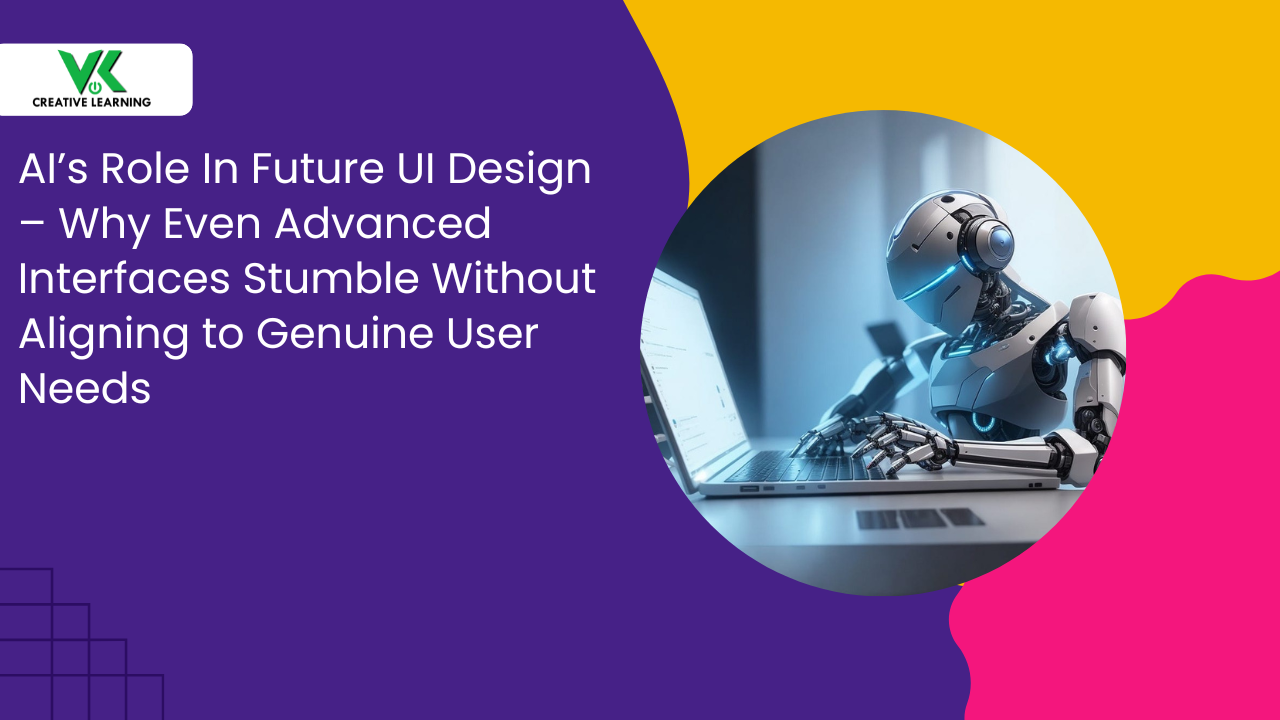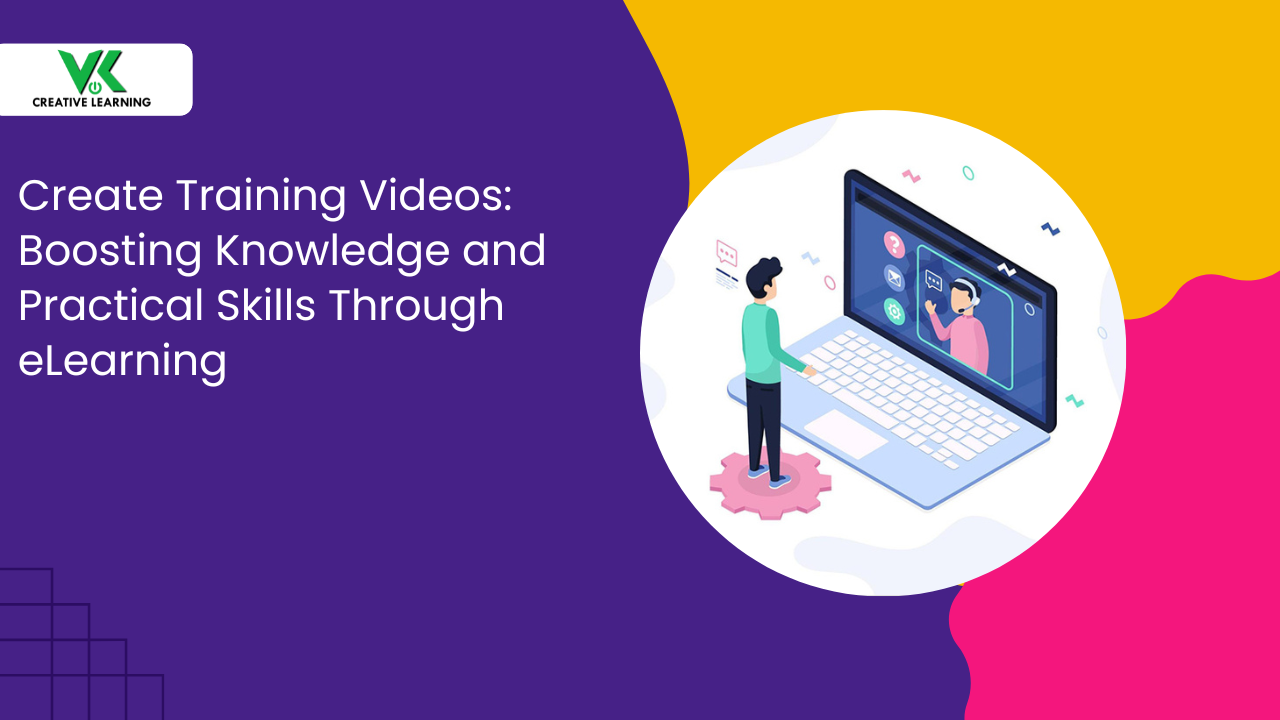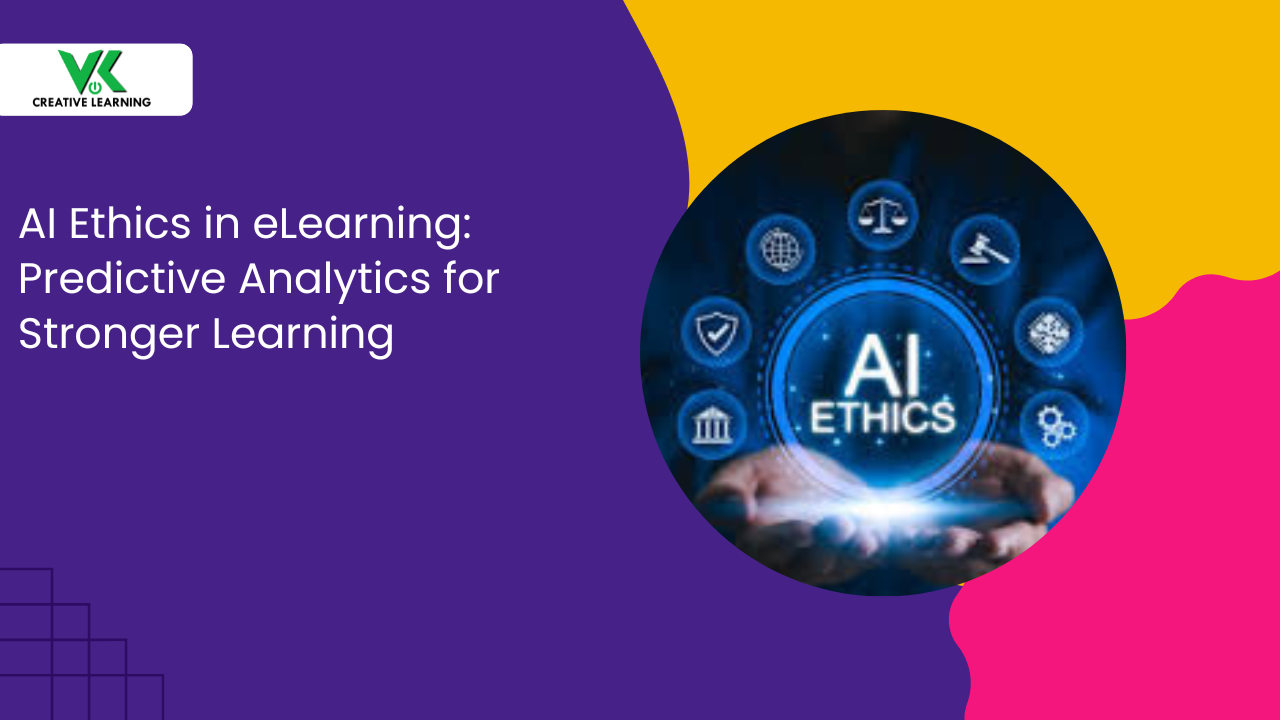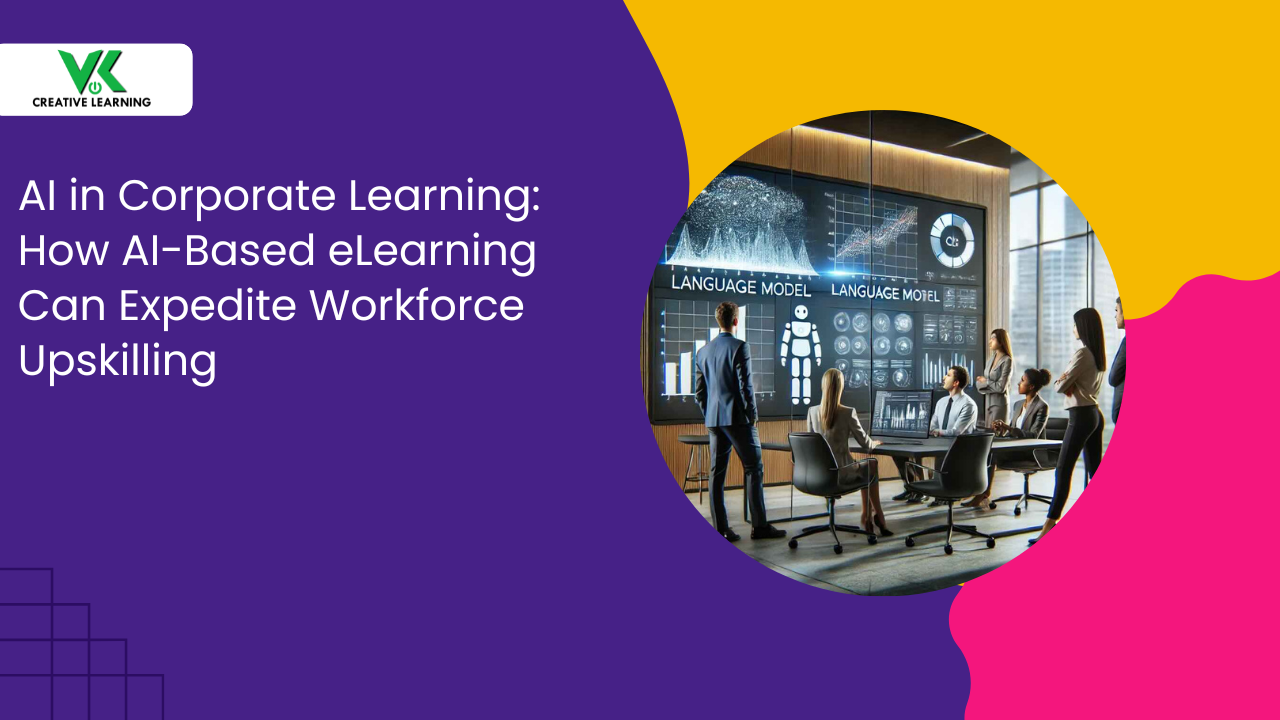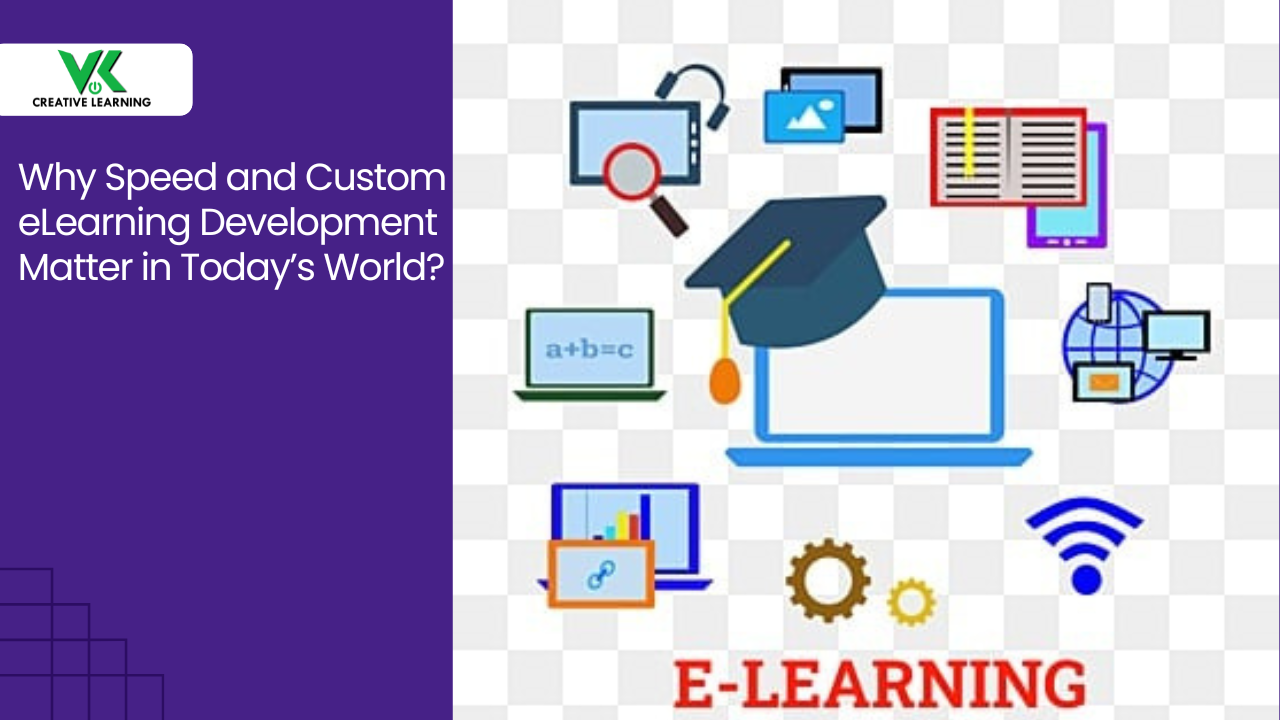How AI and ML Can Enhance Elearning Solutions?
May 20, 2023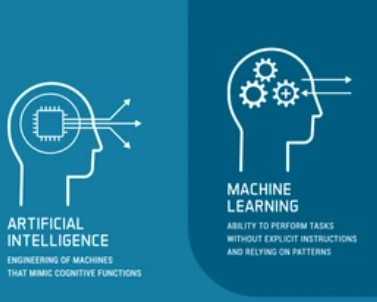
Taking a Quick Look at AI and ML Definitions:
Artificial Intelligence, also denoted as AI, encompasses the emulation of human intellect or some intelligence capabilities, achieved using sophisticated algorithms. Machine Learning involves employing data and algorithms for mimicking human learning processes. It is denoted by ML and it is an AI and computer science subfield.
Taking a Quick Look at AI and ML in eLearning Solutions
In today's swiftly progressing sphere, eLearning offers a chance for individuals from diverse ages and origins to upskill themselves. By integrating AI and ML technologies into eLearning platforms, new opportunities can be unlocked especially for personalized learning experiences.
Contemplate, for instance, AI-driven eLearning systems that accommodate each learner's distinct learning approach and tempo. They offer customized material to optimize engagement and information retention. We shall discuss more pertaining to this aspect in detail soon.
And guess what? Machine learning algorithms can be utilized to monitor learners' performance data, pinpointing patterns or knowledge gaps. This allows organizations to persistently enhance the training experience. We shall elaborately discuss this soon.
Utilization of AI and ML in eLearning Solutions
In recent years, AI and ML technologies have massively transformed the eLearning landscape owing to the benefits they render.
Natural Language Processing (or dubbed as NLP):
Through the integration of Natural Language Processing, advanced ML algorithms, and intricate Neural Networks plus Deep Learning techniques, eLearning solutions have changed into highly adaptive, remarkably efficient, and profoundly engaging systems.
Take NLP for instance; chatbots are now widely used in eLearning platforms to offer support and tutoring while making interactions feel smooth and personalized. Simultaneously, sentiment analysis is employed to understand learners’ feedback on a deeper level. This enables course creators to enhance their content based on the learners' emotions and opinions. Thus, embracing AL and ML in eLearning ensures an engaging and personalized learning journey for every trainee.
ML Technologies in eLearning solutions
Machine Learning algorithms provide the backbone for the AI-driven transformation in eLearning. Highly effective, these algorithms can mine massive data to uncover hidden patterns--which can be utilized for powerful learning predictions and insights. Let's explore two specific examples: Prediction models for performance analysis and pattern recognition in learning activities.
1. Prediction Models for Performance Analysis:
Prediction models serve as essential tools for analyzing learners' performance by accurately forecasting their potential achievements, risks of failure, or dropout rates--even the need for additional support or remediation.
An instance would be an early warning signal to trainers when learners are struggling to understand concepts; thereby allowing timely interventions to prevent further challenges.
2. Pattern Recognition in Learning Activities:
Pattern recognition in ML in eLearning allows trainers to identify trends, preferences, and common elements from various learning activities. This capability supports data-driven decisions regarding instructional design, curriculum planning, interventions, and feedback.
A prime example of pattern recognition is analyzing forum discussions to identify popular topics or issues that learners frequently discuss, helping instructors address concerns more effectively.
3. Neural Networks and Deep Learning for eLearning Solutions:
Deep learning constitutes a subfield within machine learning. Neural networks help to build the Deep Learning field.
Neural networks and Deep Learning can transform eLearning solutions completely, providing practical and modernized methods to optimize eLearning solutions. Utilizing these methodologies, interactive, captivating eLearning content can be created targeted at contemporary learners.
Take image recognition, for example, for creating interactive eLearning content. Picture interactive quizzes adapting dynamically to each learner’s performance or automatic generation of reading materials tailored to individual learning preferences.
Imagine identifying objects in images or even virtual environments to help learners understand complex concepts.
By integrating this technology into learning materials, users can experience immersive learning environments. This would help learners gain deeper insights into complex concepts, enjoying a more tailored experience.
Furthermore, text generation algorithms have considerably enhanced eLearning content production. This is achieved by automating laborious tasks and creating eLearning resources swiftly.
Advantages of Integrating AI and ML in eLearning Solutions
Customized learning experiences have been a growing trend in eLearning Solutions.
Personalization in eLearning: By furnishing trainees with a customized learning journey, they can effectively progress at their individual speed and concentrate on their personal objectives. Furthermore, this enables learners to ignore familiar content, concentrating solely on areas demanding more attention.
Adaptive Learning Paths: One prime example of this personalization is the use of adaptive learning paths in eLearning Solutions. Utilizing adaptive learning trajectories, each trainee embarks on a tailored journey through the coursework. This is tuned to cater to individual aptitudes, limitations, and passions.
By adapting the content and pacing course delivery to match each person's learning style, these tailor-made pathways lead to increased levels of engagement and better knowledge retention.
Customized Content Recommendations: Another excellent application of personalization in eLearning Solutions is through customized content recommendations.
Picture an intelligent system that combines user data with advanced algorithms to suggest relevant, engaging resources based on learners' specific learning goals or areas for growth. These targeted content suggestions boost motivation and enhance comprehension, making the learning experience more productive and enjoyable.
Improved Assessment And Feedback: One aspect that's seen significant improvement, utilizing AI and ML in eLearning, is assessment and feedback sessions.
Automated Grading in eLearning Solutions: By integrating automated grading systems, educators save time and trainees receive fair evaluations of their progress.
For instance, consider an eLearning courseware that utilizes auto-scoring for multiple-choice questions. This automated yet reliable grading eliminates human error and provides learners with accurate grades.
Real-Time Analytics for Instant Feedback: The learning experience with real-time analytics can revolutionize the way learners access instant feedback in eLearning solutions.
Pictorial representations and detailed statistics enable apprentices to discern their proficiencies, shortcomings, and areas necessitating attention.
For instance, imagine a student partaking in an eLearning program focused on efficacious communication. In this scenario, real-time analytics may exhibit the learner's prowess in enhancing verbal fluency or highlight syntax inaccuracies.
Conclusion
As we embrace the future, AI and ML will undeniably revolutionize eLearning solutions. By personalizing learning pathways and streamlining content delivery, AI and ML in eLearning will enhance training sessions comprehensively. Thus, their incorporation will ultimately foster creativity, innovation, and lifelong learning success for learners worldwide.
For incorporating AI and ML in your eLearning solutions, you can approach VK Creative Learning. It has been a reliable partner for enhancing learning materials with both technologies for many industries.
